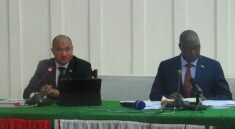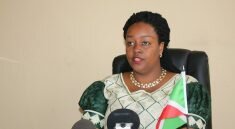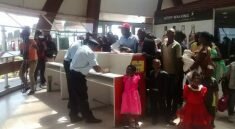BUJUMBURA October 2nd (ABP) – Burundi is performing better at the beginning and end of schooling in some disciplines than other member countries of the Conference of Education Ministers of the States and Governments of Francophone Community (CONFEMEN), said Mr. Cassien Gashirahamwe, an independent education consultant, during a capacity-building session for civil society in promoting education for all, which was held in Bujumbura on Saturday. The session was held by experts from the African Network for Education for All (ANCEFA), a check on the site by ABP has revealed.
The expert on educational planning, Mr. Gashirahamwe, pointed out that Burundi is ranked first among the member countries of the CONFEMEN in mathematics and reading, the tests of beginning and end of schooling. Through his communication on “the performance of the Burundi education system”, Mr. Gashirahamwe also stressed that the number of children in general post-basic and teacher-training education increased considerably between 2005 and 2018, from 121 653 to 368 889 with an average annual growth rate of 10.4%.
The consultant also pointed out that the number of classrooms has increased three-fold between 2005 and 2018, from 2,981 to 8,939. He also added that the number of students enrolled in secondary (post-basic) school has increased from 84,331 to 132,227 between 2013 and 2016, an increase of nearly 57%. In terms of technical education and vocational training, the Ministry notes a figure of 50,897 students in 2017 and 2018 against 26,209 in 2012-2013 with a representation of 47.2% of girls. Moreover, he said, in 2018, the ministry noted a capacity of 305 institutions with a private participation of 51.8%.
Nevertheless, the consultant pointed out that Burundi has low pre-school coverage, with a still low reception network of 1553 facilities for 2155 classrooms. The number of preschool pupils reached 107,591 in 2017-2018 compared to 55,699 in 2012-2013 in three types of childcare facilities, namely 61.9% in public schools; 21.6% in private institutions and 16.5% in community facilities.
Members of civil society organizations in the Bafashebige Coalition “Education for All” reviewed the strengths and weaknesses of education in Burundi at all levels to see how they could contribute effectively to the realization of the right to inclusive and quality education in Burundi.




